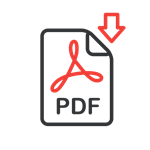
How much should we trust AI with critical research?

In the rapidly advancing world of artificial intelligence, we find ourselves at a pivotal crossroads. AI holds incredible potential to revolutionize research and innovation, but it is essential to understand its limitations and navigate the ethical complexities it presents.
AI's Capabilities in Research and Innovation
AI excels in several areas that can significantly enhance research efforts:
- Data Analysis and Pattern Recognition: AI can process vast datasets and identify subtle patterns that humans might overlook, leading to new insights.
- Hypothesis Generation and Experiment Design: AI can assist researchers in formulating questions, designing experiments, and generating hypotheses, streamlining the research process.
- Accelerated Discovery: By automating repetitive tasks, AI tools can speed up research, allowing scientists to focus on more complex problems.
Potential Biases and Limitations of AI Systems
Despite its advantages, AI is not without challenges:
- Data Bias: AI systems can inherit biases from their training data, resulting in skewed outcomes and unfair conclusions.
- Interpretability Challenge: Understanding how AI systems arrive at their conclusions can be difficult, raising questions about the trustworthiness of their outputs.
- Lack of Common Sense: AI often struggles with tasks requiring common sense or nuanced contextual understanding, limiting its effectiveness in certain scenarios.
Ethical Concerns Around AI-Driven Research
The integration of AI into research also raises significant ethical concerns:
- Privacy and Security: AI systems frequently handle sensitive data, leading to concerns about privacy and potential misuse.
- Accountability: Determining responsibility for errors or harmful decisions made by AI systems presents a complex ethical challenge.
- Fairness and Bias: Ensuring that AI systems operate fairly and without bias is crucial to avoid perpetuating existing inequalities.
Regulatory Frameworks for AI Oversight
To address these challenges, robust regulatory frameworks are essential:
- International Cooperation: Collaborative efforts among nations are vital for developing global AI ethics and governance frameworks.
- Industry Standards: Establishing industry-specific guidelines and best practices can promote responsible AI development and deployment.
- Government Oversight: Government regulations are crucial for ensuring the ethical and responsible use of AI in research and beyond.
The Role of Human Expertise in Validating AI Outputs
Human expertise remains indispensable in the AI research landscape:
- Critical Thinking: Experts are essential for critically evaluating AI outputs, ensuring that results are sound and ethical.
- Domain Knowledge: Specialists in specific fields validate AI-generated insights, providing necessary context.
- Ethical Considerations: Humans play a crucial role in aligning AI research with ethical principles and societal values.
Strategies for Responsible AI Implementation in Research
To harness AI responsibly, consider these strategies:
- Transparency and Explainability: Building trust requires making AI systems transparent and explainable, allowing users to understand decision-making processes.
- Ethical Guidelines: Developing and adhering to ethical guidelines for AI research is essential for responsible use.
- Continuous Evaluation: Regularly assessing AI systems for bias, accuracy, and ethical implications is critical for ongoing responsible use.
Final Thoughts
As AI continues to evolve, the future of research will likely involve deeper partnerships between humans and AI. By leveraging AI's capabilities while navigating its limitations and ethical complexities, we can unlock its potential to advance critical fields while upholding human values.
Read More

